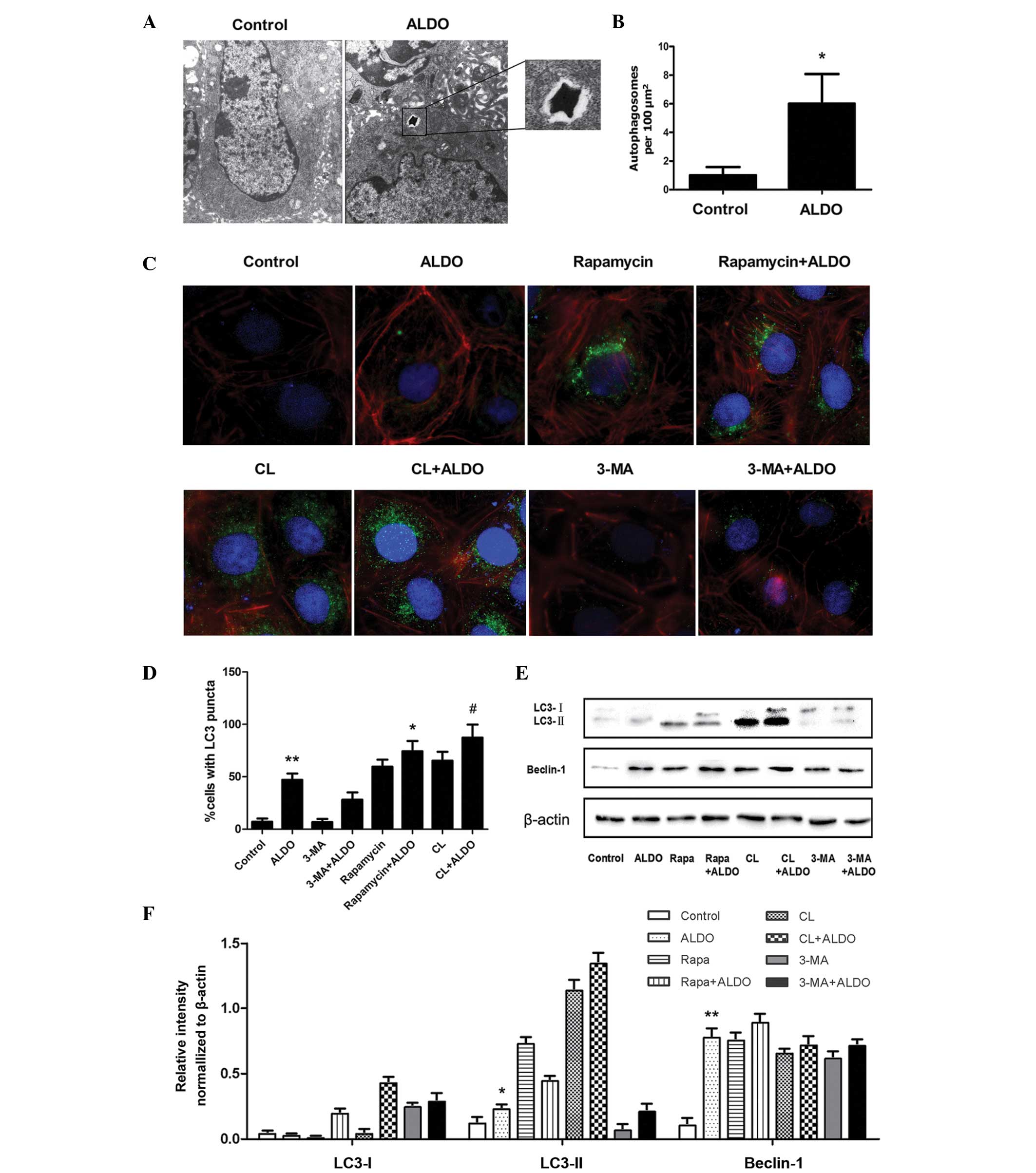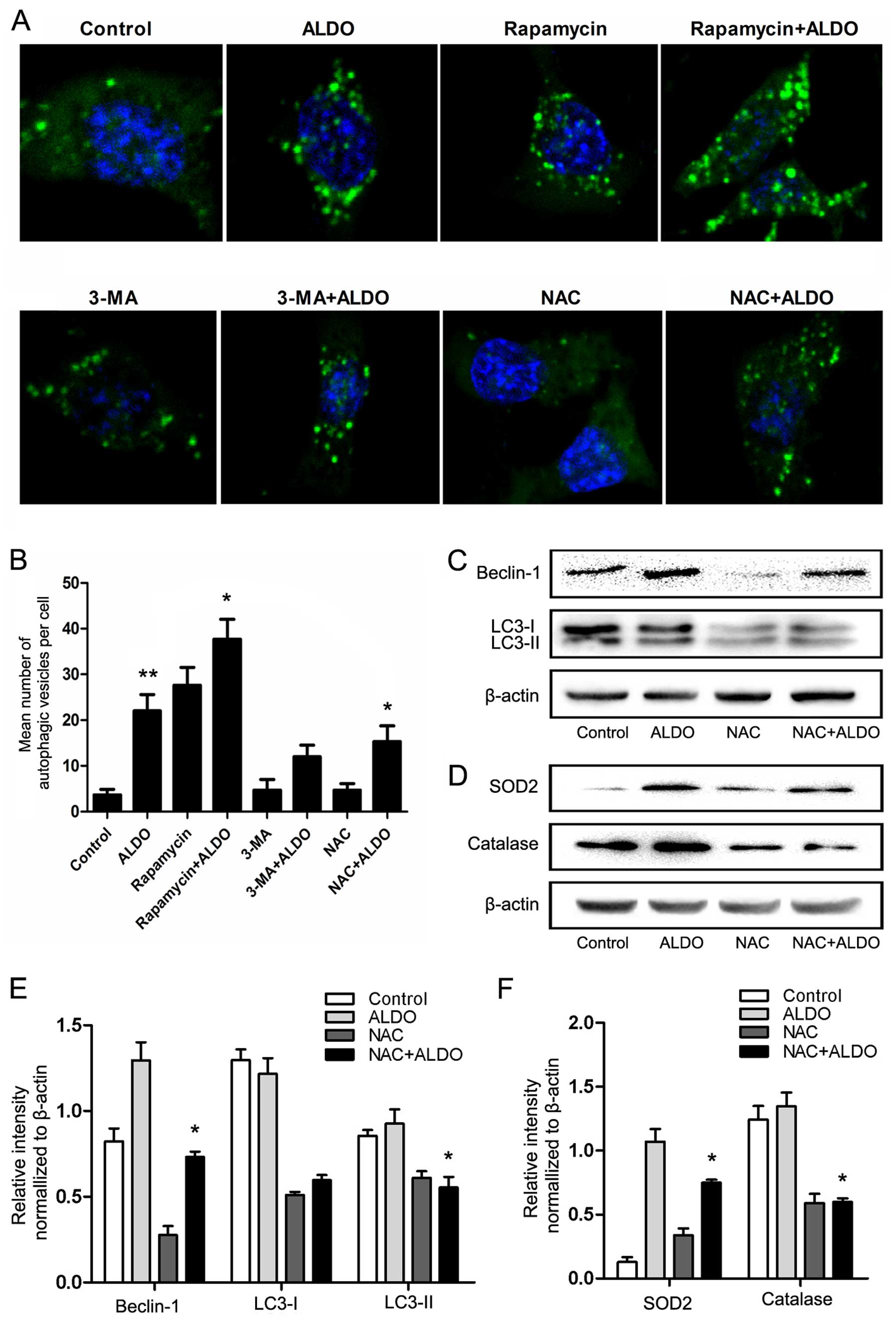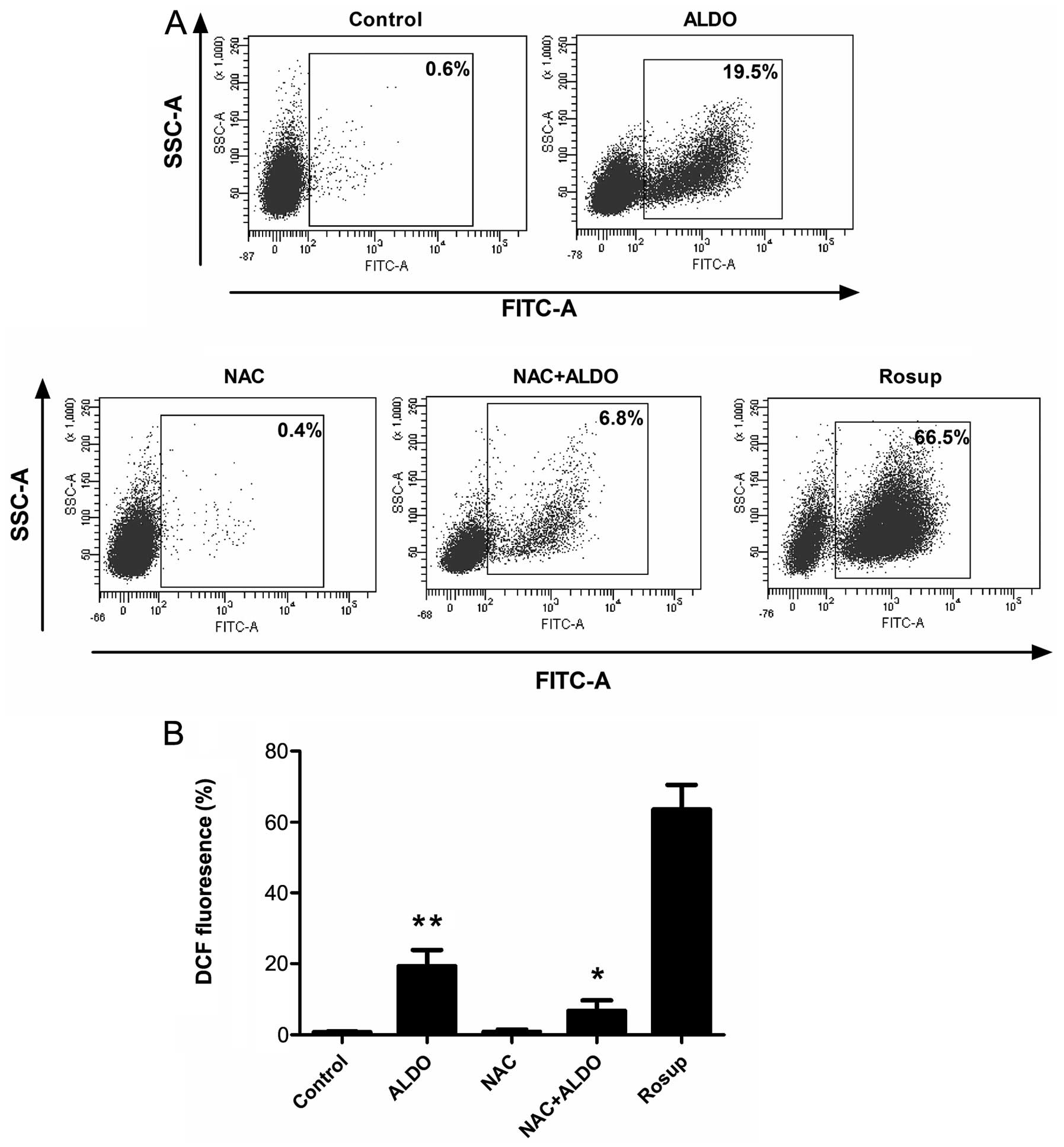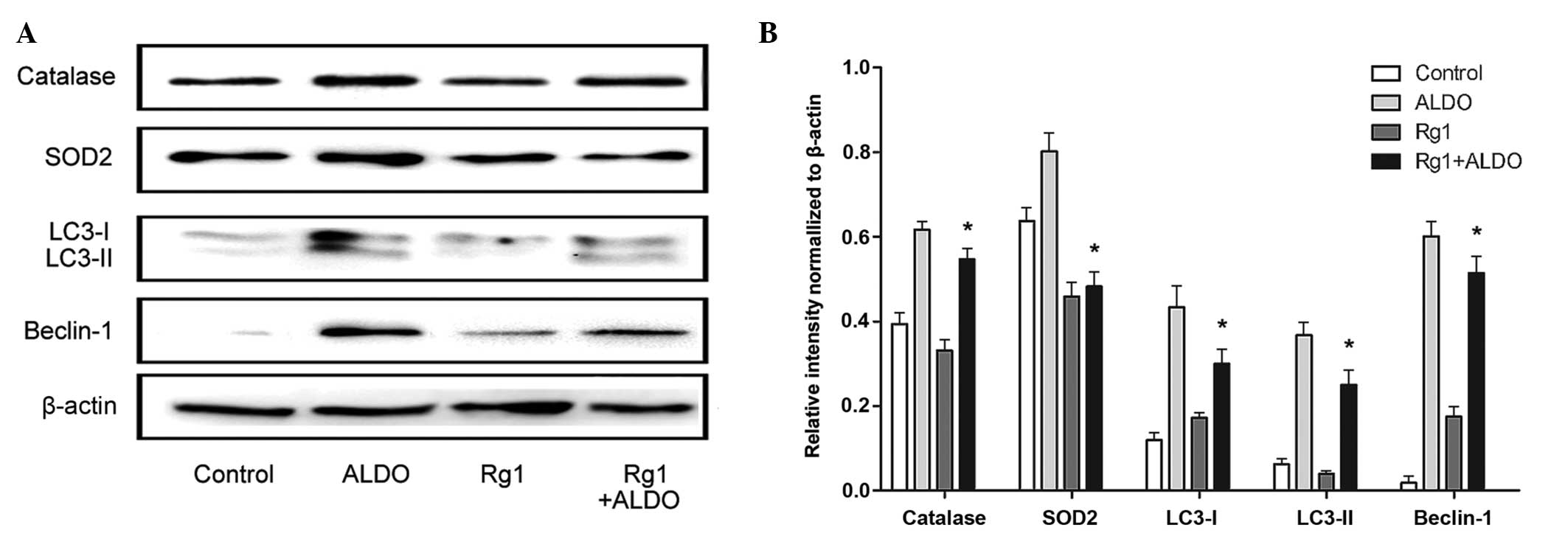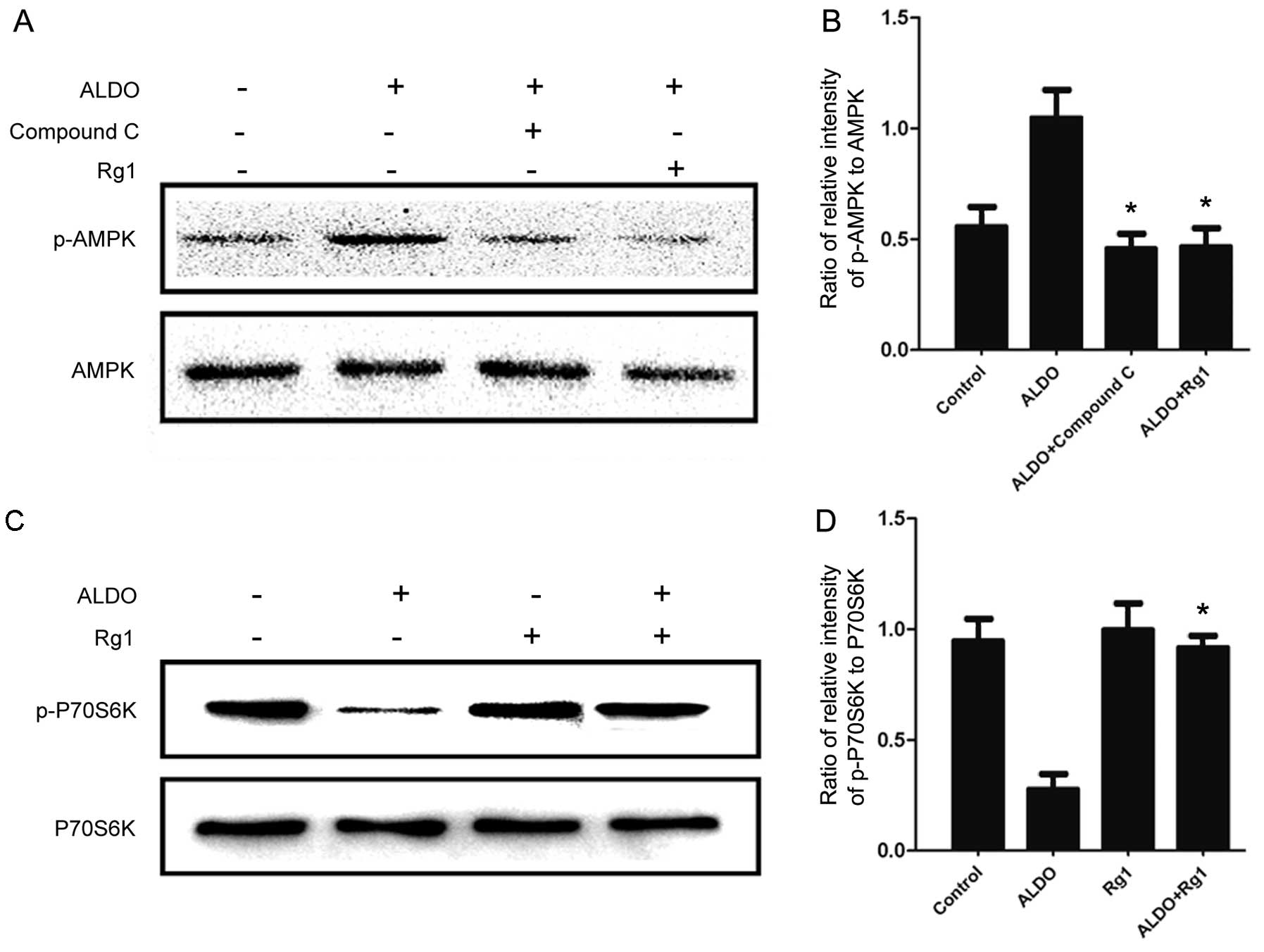|
1
|
Crabbe J: Stimulation of active sodium
transport by the isolated toad bladder with aldosterone in vitro. J
Clin Invest. 40:2103–2110. 1961. View Article : Google Scholar : PubMed/NCBI
|
|
2
|
Nguyen Dinh Cat A and Jaisser F:
Extrarenal effects of aldosterone. Curr Opin Nephrol Hypertens.
21:147–156. 2012. View Article : Google Scholar : PubMed/NCBI
|
|
3
|
McGowan AJ, Fernandes RS, Samali A and
Cotter TG: Anti-oxidants and apoptosis. Biochem Soc Trans.
24:229–233. 1996.PubMed/NCBI
|
|
4
|
Patni H, Mathew JT, Luan L, Franki N,
Chander PN and Singhal PC: Aldosterone promotes proximal tubular
cell apoptosis: Role of oxidative stress. Am J Physiol Renal
Physiol. 293:F1065–F1071. 2007. View Article : Google Scholar : PubMed/NCBI
|
|
5
|
Nishiyama A and Abe Y: Aldosterone and
renal injury. Nippon Yakurigaku Zasshi. 124:101–109. 2004.
View Article : Google Scholar : PubMed/NCBI
|
|
6
|
Shibata S, Nagase M, Yoshida S, Kawachi H
and Fujita T: Podocyte as the target for aldosterone: Roles of
oxidative stress and Sgk1. Hypertension. 49:355–364. 2007.
View Article : Google Scholar : PubMed/NCBI
|
|
7
|
Queisser N, Amann K, Hey V, Habib SL and
Schupp N: Blood pressure has only minor influence on
aldosterone-induced oxidative stress and DNA damage in vivo. Free
Radic Biol Med. 54:17–25. 2013. View Article : Google Scholar
|
|
8
|
Yu L: Recent progress in autophagy. Cell
Res. 24:1–2. 2014. View Article : Google Scholar : PubMed/NCBI
|
|
9
|
Ravikumar B, Sarkar S, Davies JE, Futter
M, Garcia-Arencibia M, Green-Thompson ZW, Jimenez-Sanchez M,
Korolchuk VI, Lichtenberg M, Luo S, et al: Regulation of mammalian
autophagy in physiology and pathophysiology. Physiol Rev.
90:1383–1435. 2010. View Article : Google Scholar : PubMed/NCBI
|
|
10
|
Mizushima N, Levine B, Cuervo AM and
Klionsky DJ: Autophagy fights disease through cellular
self-digestion. Nature. 451:1069–1075. 2008. View Article : Google Scholar : PubMed/NCBI
|
|
11
|
Chen Y and Gibson SB: Is mitochondrial
generation of reactive oxygen species a trigger for autophagy?
Autophagy. 4:246–248. 2008. View Article : Google Scholar
|
|
12
|
Xie Z and Klionsky DJ: Autophagosome
formation: Core machinery and adaptations. Nat Cell Biol.
9:1102–1109. 2007. View Article : Google Scholar : PubMed/NCBI
|
|
13
|
Kabeya Y, Mizushima N, Ueno T, Yamamoto A,
Kirisako T, Noda T, Kominami E, Ohsumi Y and Yoshimori T: LC3, a
mammalian homologue of yeast Apg8p, is localized in autophagosome
membranes after processing. EMBO J. 19:5720–5728. 2000. View Article : Google Scholar : PubMed/NCBI
|
|
14
|
Kihara A, Kabeya Y, Ohsumi Y and Yoshimori
T: Beclin-phosphatidylinositol 3-kinase complex functions at the
trans-Golgi network. EMBO Rep. 2:330–335. 2001. View Article : Google Scholar : PubMed/NCBI
|
|
15
|
Furuya N, Yu J, Byfield M, Pattingre S and
Levine B: The evolutionarily conserved domain of Beclin 1 is
required for Vps34 binding, autophagy and tumor suppressor
function. Autophagy. 1:46–52. 2005. View Article : Google Scholar
|
|
16
|
Itakura E, Kishi C, Inoue K and Mizushima
N: Beclin 1 forms two distinct phosphatidylinositol 3-kinase
complexes with mammalian Atg14 and UVRAG. Mol Biol Cell.
19:5360–5372. 2008. View Article : Google Scholar : PubMed/NCBI
|
|
17
|
Sun Q, Fan W, Chen K, Ding X, Chen S and
Zhong Q: Identification of Barkor as a mammalian autophagy-specific
factor for Beclin 1 and class III phosphatidylinositol 3-kinase.
Proc Natl Acad Sci USA. 105:19211–19216. 2008. View Article : Google Scholar : PubMed/NCBI
|
|
18
|
Butler D, Brown QB, Chin DJ, Batey L,
Karim S, Mutneja MS, Karanian DA and Bahr BA: Cellular responses to
protein accumulation involve autophagy and lysosomal enzyme
activation. Rejuvenation Res. 8:227–237. 2005. View Article : Google Scholar : PubMed/NCBI
|
|
19
|
Lü JM, Yao Q and Chen C: Ginseng
compounds: An update on their molecular mechanisms and medical
applications. Curr Vasc Pharmacol. 7:293–302. 2009. View Article : Google Scholar : PubMed/NCBI
|
|
20
|
Liu CX and Xiao PG: Recent advances on
ginseng research in China. J Ethnopharmacol. 36:27–38. 1992.
View Article : Google Scholar : PubMed/NCBI
|
|
21
|
Mochizuki M, Yoo YC, Matsuzawa K, Sato K,
Saiki I, Tono-oka S, Samukawa K and Azuma I: Inhibitory effect of
tumor metastasis in mice by saponins, ginsenoside-Rb2, 20(R)-and
20(S)-ginsenoside-Rg3, of red ginseng. Biol Pharm Bull.
18:1197–1202. 1995. View Article : Google Scholar : PubMed/NCBI
|
|
22
|
Zhu D, Wu L, Li CR, Wang XW, Ma YJ, Zhong
ZY, Zhao HB, Cui J, Xun SF, Huang XL, et al: Ginsenoside Rg1
protects rat cardiomyocyte from hypoxia/reoxygenation oxidative
injury via antioxidant and intracellular calcium homeostasis. J
Cell Biochem. 108:117–124. 2009. View Article : Google Scholar : PubMed/NCBI
|
|
23
|
Zhang ZL, Fan Y and Liu ML: Ginsenoside
Rg1 inhibits autophagy in H9c2 cardiomyocytes exposed to
hypoxia/reoxygenation. Mol Cell Biochem. 365:243–250. 2012.
View Article : Google Scholar : PubMed/NCBI
|
|
24
|
Mao N, Cheng Y, Shi XL, Wang L, Wen J,
Zhang Q, Hu QD and Fan JM: Ginsenoside Rg1 protects mouse podocytes
from aldosterone-induced injury in vitro. Acta Pharmacol Sin.
35:513–522. 2014. View Article : Google Scholar : PubMed/NCBI
|
|
25
|
Kim J, Kundu M, Viollet B and Guan KL:
AMPK and mTOR regulate autophagy through direct phosphorylation of
Ulk1. Nat Cell Biol. 13:132–141. 2011. View
Article : Google Scholar : PubMed/NCBI
|
|
26
|
Ibrahim HN, Rosenberg ME and Hostetter TH:
Role of the renin-angiotensin-aldosterone system in the progression
of renal disease: A critical review. Semin Nephrol. 17:431–440.
1997.PubMed/NCBI
|
|
27
|
Namsolleck P and Unger T: Aldosterone
synthase inhibitors in cardiovascular and renal diseases. Nephrol
Dial Transplant. 29(Suppl 1): i62–i68. 2014. View Article : Google Scholar : PubMed/NCBI
|
|
28
|
Nagase M, Yoshida S, Shibata S, Nagase T,
Gotoda T, Ando K and Fujita T: Enhanced aldosterone signaling in
the early nephropathy of rats with metabolic syndrome: possible
contribution of fat-derived factors. J Am Soc Nephrol.
17:3438–3446. 2006. View Article : Google Scholar : PubMed/NCBI
|
|
29
|
Hardie DG: AMP-activated/SNF1 protein
kinases: conserved guardians of cellular energy. Nat Rev Mol Cell
Biol. 8:774–785. 2007. View
Article : Google Scholar : PubMed/NCBI
|
|
30
|
Xu JT, Zhao X, Yaster M and Tao YX:
Expression and distribution of mTOR, p70S6K, 4E-BP1, and their
phosphorylated counterparts in rat dorsal root ganglion and spinal
cord dorsal horn. Brain Res. 1336:46–57. 2010. View Article : Google Scholar : PubMed/NCBI
|















